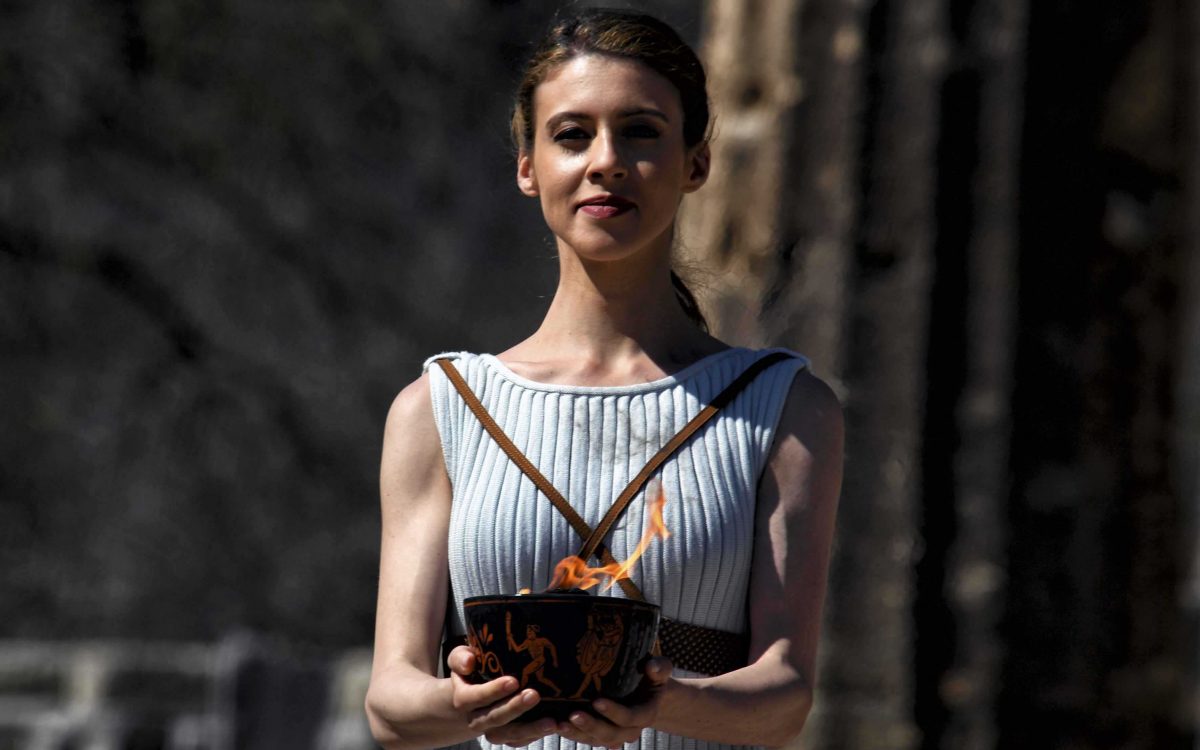Perhaps the most iconic moment of the Olympic Games is the arrival of the flame at the opening ceremony. However, the beginning of the flame’s journey is marked by an event that, if not as spectacular and widely broadcast, is equally as meaningful, tying the games’ modern incarnation to their ancient roots.
The lighting of the flame, which will burn during the Tokyo 2020 Olympic Games, took place on Thursday, March 12 where it always does, at the archaeological site at Olympia, home of the games in antiquity.
The audience was small this year, limited by the safety measures put in place to prevent the spread of the COVID-19 coronavirus. The Greek dignitaries present included the outgoing President of the Hellenic Republic, Prokopios Pavlopoulos, and the Minister of Culture and Sport, Lina Mendoni.
Standing in the stadium where ancient athletes once sought glory, surrounded by the remains of the ancient sanctuary of Zeus, the buildings once used for the ancient games, and statues of Olympic winners, the president of the International Olympic Committee, Thomas Bach, underlined the importance of the games in modern times: “Today, the Olympic Games are the only event that brings the entire world together in peaceful competition.”
Representative of the Tokyo 2020 organizing committee, Toshiaki Endo, expressed gratitude towards the Greek people for taking the appropriate measures to make the ceremony possible in the face of the coronavirus crisis. He also spoke about the importance of the flame, which first traveled to Japan 56 years ago for the Tokyo 1969 Olympic Games, the first games ever hosted in Asia, saying that since then and until this day, the memory has given the Japanese people hope and encouragement, helping them through hard times.
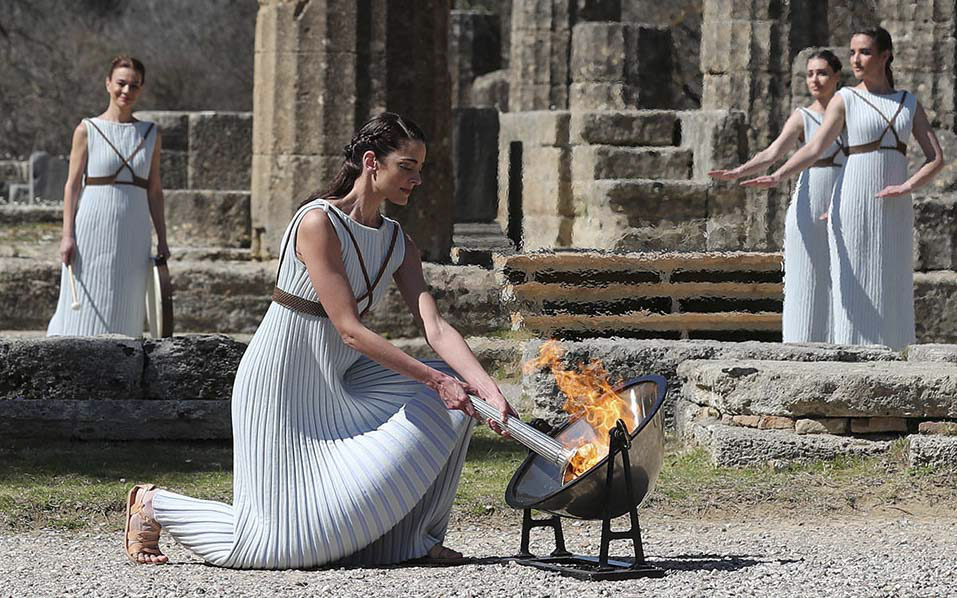
The ceremony then moved to the Temple of Hera, where the flame was lit from the sun’s rays using a parabolic mirror. The weather obliged with clear skies as the high priestess, played by actress Xanthi Georgiou, invoked Apollo, the god of light.
“Apollo, god of the sun and the idea of light, send your rays and light the sacred torch for the hospitable city of Tokyo,’’ Georgiou said in Greek, lines from the poem Light of Olympia by Takis Dokis recited at every flame lighting ceremony.
Actors and dancers then performed a dance at the stadium in reflecting ancient rituals. “This year’s choreography is inspired by images on archaic vases… frescoes and statues” said choreographer of the event, Artemis Ignatiou, at a press conference held recently by the Hellenic Olympic Committee. The performance was set to musical works of composer Yiannis Psiedamas.
Finally, Georgiou passed the flame to the first torchbearer of 2020, and the Olympic torch relay, a tradition dating back to 1936, began.
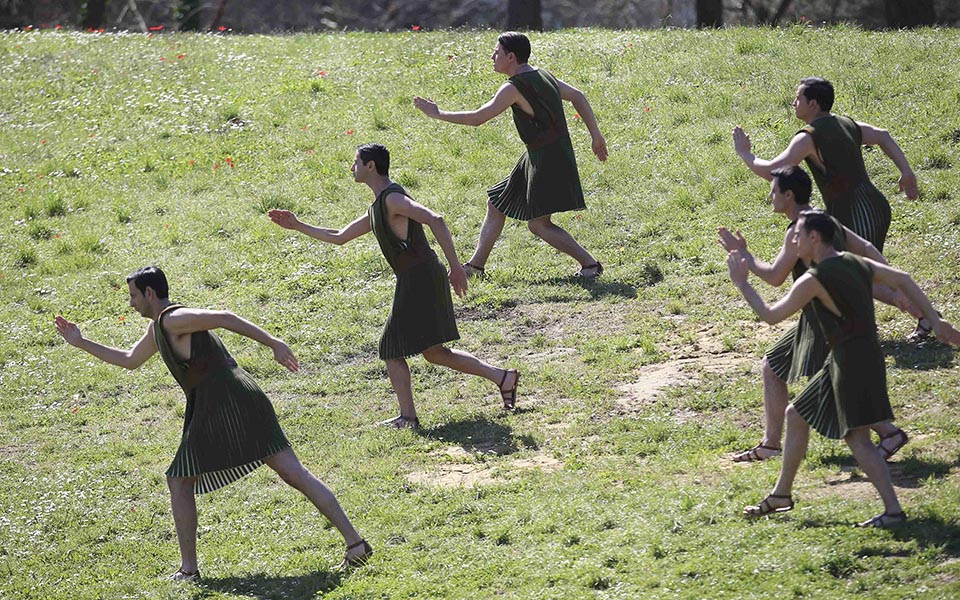
© INTIME
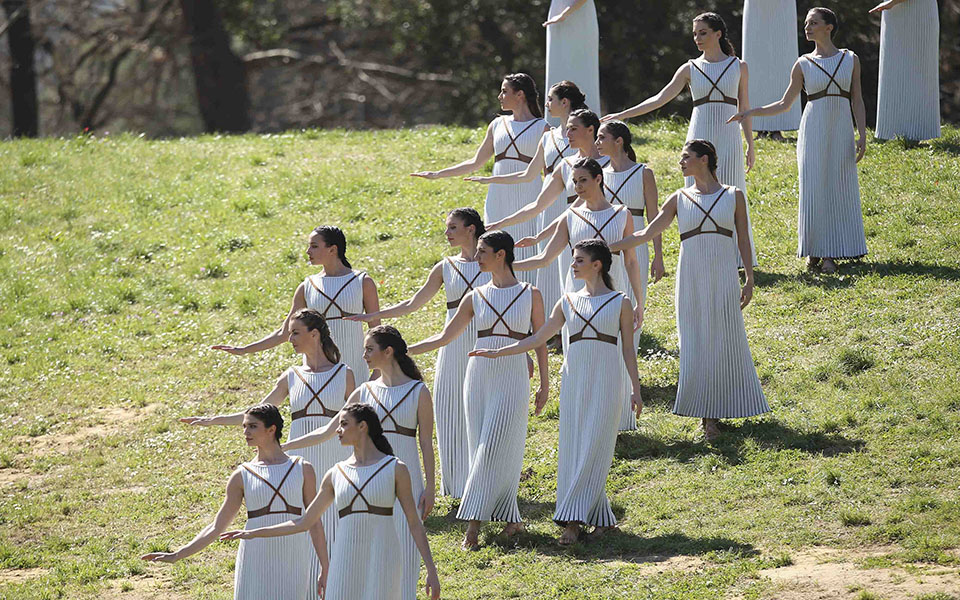
© INTIME
This year, for the first time in history, the first torchbearer of the relay was a woman: Olympic champion in shooting, Anna Korakaki, who took home two medals at the Rio 2016 Olympics (a gold in the 25m pistol and a bronze in the 10m air pistol).
“Anna Korakaki not only represents sports excellence, but also our belief in gender equality and social inclusion,” said President of the Hellenic Olympic Committee, Spyros Capralos.
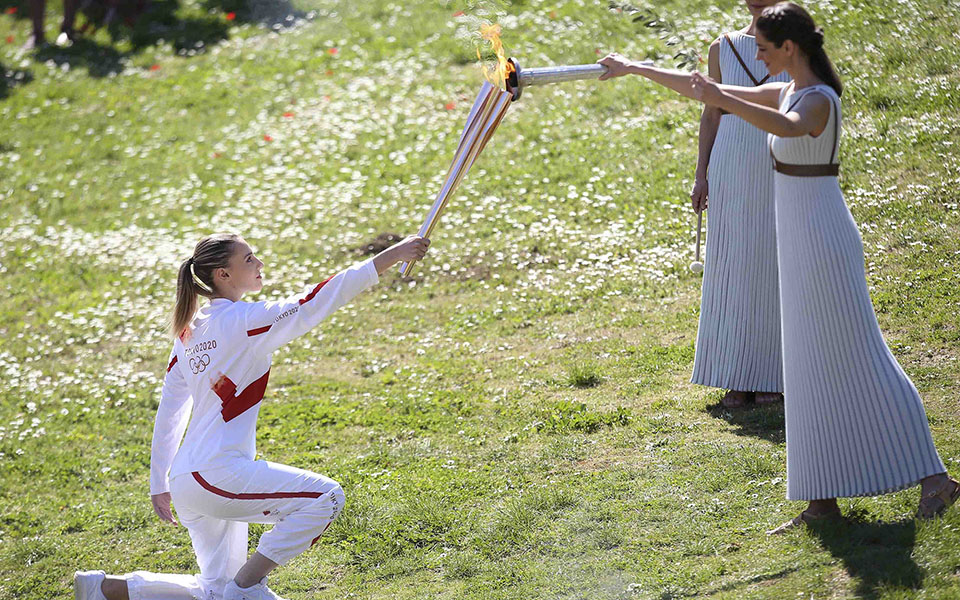
© INTIME
Greek Torch Relay Cut Short due to Coronavirus Fears
But the torch relay of 2020 also made history for another, less positive reason.
600 relay runners were to carry the torch across 3,200 kilometers of Greek soil, passing through 31 cities and 15 archaeological sites over eight days, after which the torch was to be transported to Japan by air.
Perhaps the most hotly anticipated bearer was Scottish actor Gerard Butler, popular among Greeks for his role as the warrior king Leonidas in the Hollywood film “300”.
On Friday Butler received the flame in the modern day city of Sparta, and delighted those assembled with a short address which ended on Leonidas’ famous line, “This is Sparta!”
However the excitement created by the Hollywood actor’s presence in the city caused many members of the public to flout authorities’ entreaties to keep away from the torch relay over fears over the spread of coronavirus.
A little later the Hellenic Olympic Committee announced the cancellation of the rest of the torch relay planned in Greece,
“Following the unexpectedly large crowd at the Ceremony of the Olympic flame in Sparta and despite the repeated recommendations to the public to not gather at the Ceremonies in the cities on the route of the Flame [the Hellenic Olympic Committee] took the difficult but necessary decision to cancel the rest of the programmed torch relay on Greek soil,” the committee said in a statement.
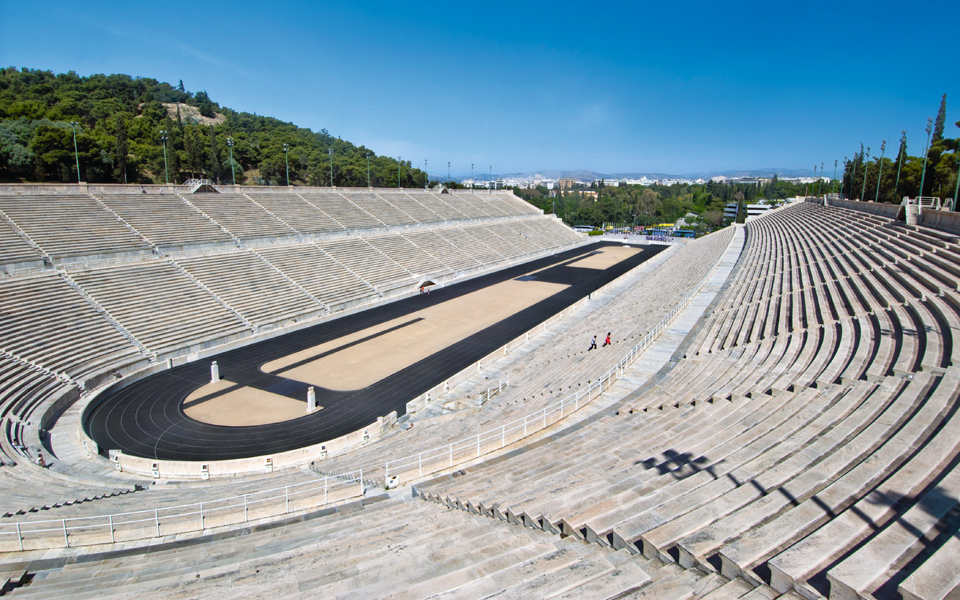
© Clairy Moustafellou
The Hellenic Olympic Committee will hand the Olympic torch to the Tokyo Organizing Committee of the Olympic and Paralympic Games as planned during a ceremony at the Panathenaic Stadium in Athens on March 19 with the event closed to the public.
The flame will then be flown to Japan, where it is due to tour the country in a relay that will feature 10,000 torchbearers, before it will finally reach the opening ceremony at Tokyo’s Olympic Stadium on July 24.

